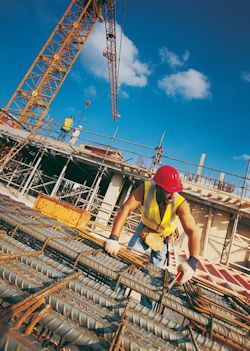The Crew
Before the operation begins, the A/D director must ensure that the crew members understand all of the following:
- their tasks,
- the hazards associated with their tasks, and
- the hazardous positions/locations that they need to avoid.

Before a crew member goes to a location that is out of view of the operator and is either in, on, or under the equipment, or near the equipment (or load) where the crew member could be injured by movement of the equipment (or load), the crew member must inform the operator that he/she is going to that location.
Whenever the operator knows that a crew member is in such a potentially dangerous position, the operator must not move any part of the equipment (or load) until the operator is informed in accord with a pre-arranged system of communication that the crew member is in a safe position.
The Rigger
When rigging is used for Assembly and Disassembly, the employer must ensure that the rigging work is done by a rigger who meets the requirements as a qualified person and successfully demonstrates the ability to solve/resolve problems relating to rigging.
A rigger is required to be present when:
- Rigging is part of assembly or disassembly work involving a crane
- Workers are within the fall zone and are hooking, unhooking, or guiding a load
A rigger doesn't have to be qualified to do all rigging jobs. You must determine whether a person is qualified to perform specific rigging tasks. Each qualified rigger may have different credentials or experience. (Oregon OSHA)
Knowledge Check Choose the best answer for the question.
3-5. Who is required to be present when workers are within the fall zone and are hooking, unhooking, or guiding a load?
You forgot to answer the question!
